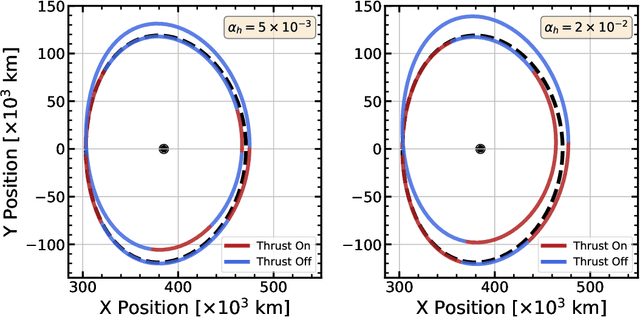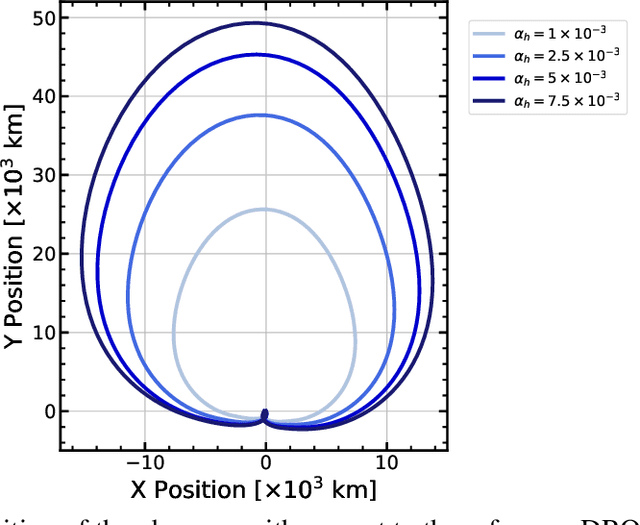Information-Based Trajectory Planning for Autonomous Absolute Tracking in Cislunar Space
Paper and Code
Aug 30, 2024



The resurgence of lunar operations requires advancements in cislunar navigation and Space Situational Awareness (SSA). Challenges associated to these tasks have created an interest in autonomous planning, navigation, and tracking technologies that operate with little ground-based intervention. This research introduces a trajectory planning tool for a low-thrust mobile observer, aimed at maximizing navigation and tracking performance with satellite-to-satellite relative measurements. We formulate an expression for the information gathered over an observation period based on the mutual information between augmented observer/target states and the associated measurement set collected. We then develop an optimal trajectory design problem for a mobile observer, balancing information gain and control effort, and solve this problem with a Sequential Convex Programming (SCP) approach. The developed methods are demonstrated in scenarios involving spacecraft in the cislunar regime, demonstrating the potential for improved autonomous navigation and tracking.
 Add to Chrome
Add to Chrome Add to Firefox
Add to Firefox Add to Edge
Add to Edge